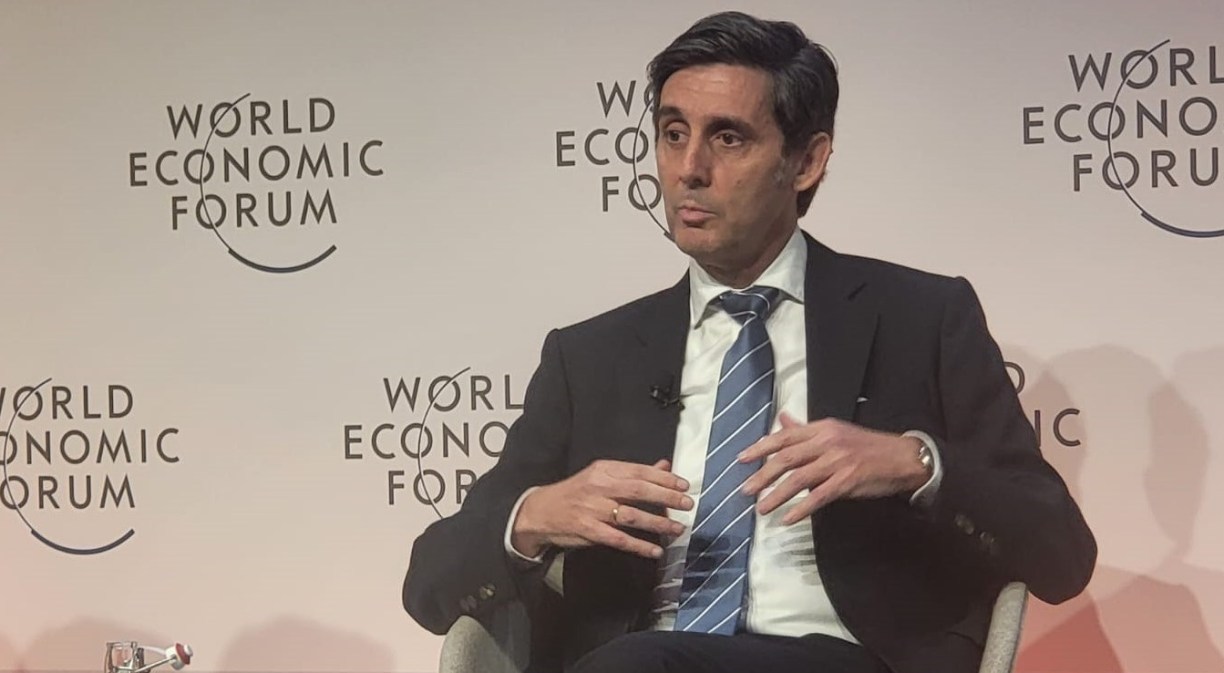Telefónica’s CEO José María Álvarez-Pallete, stressed during his speech at the Davos World Economic Forum, where he participated today in a panel entitled ‘Unlocking Digital Innovation for Net Zero, that “green and digital transitions go hand-in-hand” meaning that “without digitalisation there is no green transition”. He also claimed the telco sector crucial role, as it has the power to transform other industries to make progress in energy efficiency.
“We have always been part of the solution,” he said, relying on the fact that telco industry has the potential to help other sectors reduce 10 times more greenhouse gasses emissions. Precisely because of this contribution, it is also essential that telecommunications infrastructures are recognised as sustainable investments by all stakeholders and are adequately represented in the European taxonomy of sustainable activities.
In this context, Telefónica is a pioneer in the sustainable financing segment. In 2019 the company launched the industry’s first green bond, in 2020 issued the first green hybrid bond and in 2021 placed the first sector’s sustainable hybrid bond. In addition, it has already reached more than €10 billion of ESG financing.
To make progress in this process, Álvarez-Pallete called for “strong political and regulatory mechanisms to further develop decarbonization plans leveraged on digitalization”. “It is our collective responsibility to spread the benefits of digitization to all sectors and particularly to SMEs to accelerate the multiplying effect of technology to decarbonizing the economy. If we do it right, it will bring significant benefits to society”, he advocated in Davos. “There is no energy transition without digitization,” he reinforced.
Telefónica`s CEO also pointed out that “smart infrastructure is the backbone of the green transition, a game changer for a net-zero economy”. Specifically, he indicated that digital technologies and services have the capacity to reduce global emissions between 15% and 35% by 2030.
Specific and ambitious goals integrated into the strategy
Along with the milestones achieved in sustainable financing, Álvarez-Pallete also stressed that sustainability is an essential part of the company’s strategy and business: “We are pioneers in addressing the energy and digital transition. Sustainability is at the heart of who we are and what we do”.
“At Telefónica we are walking the walk. We have a long track-record decarbonizing our own operations and our value chain and developing smart-technologies. We rank as one of the leading companies in sustainability and as a benchmark in environmental management, including the A list of the CDP for the last eight years”, he argued.
These achievements are supported by concrete and ambitious targets. Telefónica will achieve net zero emissions in its main markets by 2025 and in all countries where it is present by 2040, as well as in its value chain. So far, just in 2021 it was already able to reduce its own emissions by 70%. At the same time, the company continues to transform its networks while turning off its legacy, dispensing with copper and accelerating the deployment of fiber and 5G: fiber is 85% more efficient than copper and 5G is 90% more efficient than 4G. Since 2019, Telefónica has been using exclusively renewable electricity in its main markets, and the Group is also transforming its operating model and 80% of processes are already digitalized. These advances have enabled the company to cut energy consumption by 7% in the last six years while increasing its traffic 7-fold in the same period.
